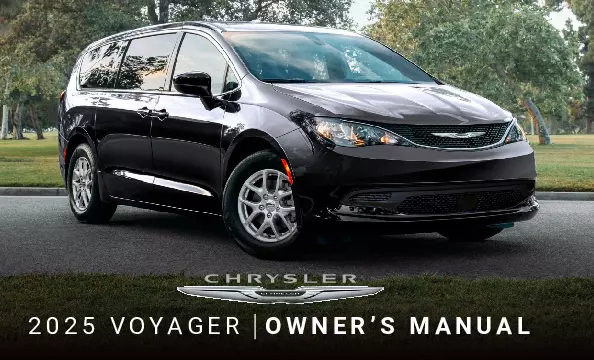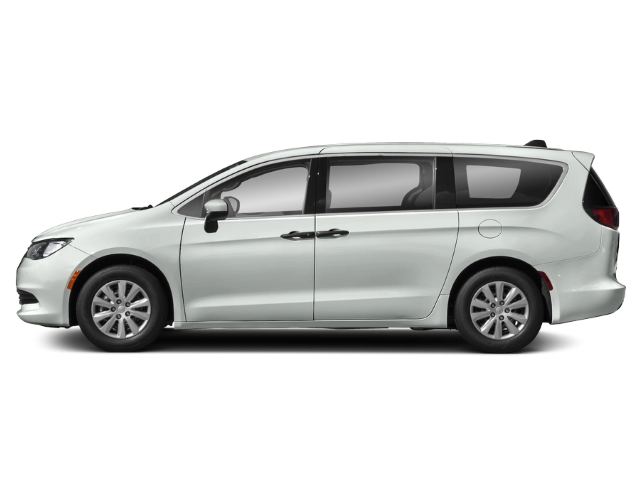2025 Chrysler Voyager Owner's Manual

Table of Contents
2025 Chrysler Voyager Overview
Introduction
The 2025 Chrysler Voyager redefines family-focused transportation by seamlessly blending functionality, comfort, and cutting-edge technology. With a sleek design that captures attention and spacious interiors that cater to both passengers and cargo, the Voyager is engineered for adventure, whether it's daily commutes or cross-country road trips. Chrysler has taken great care to ensure that this model not only meets the needs of families but also excites them with its modern flair and versatile features.
Powertrains
The 2025 Voyager is powered by an efficient and responsive 3.6L V6 engine, delivering 287 horsepower and 262 lb-ft of torque, ensuring ample power for a smooth and enjoyable driving experience. Paired with an innovative 9-speed automatic transmission, the powertrain optimizes fuel efficiency, making the Voyager a smart choice for eco-conscious families. With an available all-wheel-drive system, drivers can confidently navigate through various terrains and weather conditions.
Trims
The 2025 Chrysler Voyager comes in two thoughtfully designed trims: the base Voyager and the upgraded Voyager Plus. The base model is equipped with essential features, ensuring families can enjoy quality and comfort. The Voyager Plus enhances the driving experience with additional luxury touches, including upgraded upholstery, enhanced infotainment systems, and driver-assistance technology, making long journeys more enjoyable and less stressful.
Features
Comfort and convenience are at the forefront of the Voyager’s design. It boasts an expansive cabin with seating for up to seven passengers and configurable cargo space, thanks to the Stow 'n Go seating system. The infotainment system features a large touchscreen display with Apple CarPlay and Android Auto compatibility, ensuring connectivity on the go. Advanced safety features come standard, including adaptive cruise control, lane-keeping assist, and a rearview camera, emphasizing Chrysler’s commitment to the well-being of its passengers.
Owners Manual
The 2025 Chrysler Voyager's owner's manual is an invaluable resource for both first-time and experienced owners. It provides a comprehensive overview of the vehicle's features, maintenance schedules, and troubleshooting tips, ensuring that owners can maximize their vehicle's capabilities. Detailed illustrations and user-friendly instructions make it easy to understand how to operate various systems and optimize vehicle performance, contributing to a hassle-free ownership experience.
User manual download
The Chrysler Voyager owner manual for the 2025 model year is to be found in PDF downloadable format on this page. The owner manual for the model year 2025 is free and in English, but the repair manuals are usually not easy to get and may cost more.
Manual Questions
Fill the form below and someone will help you!

